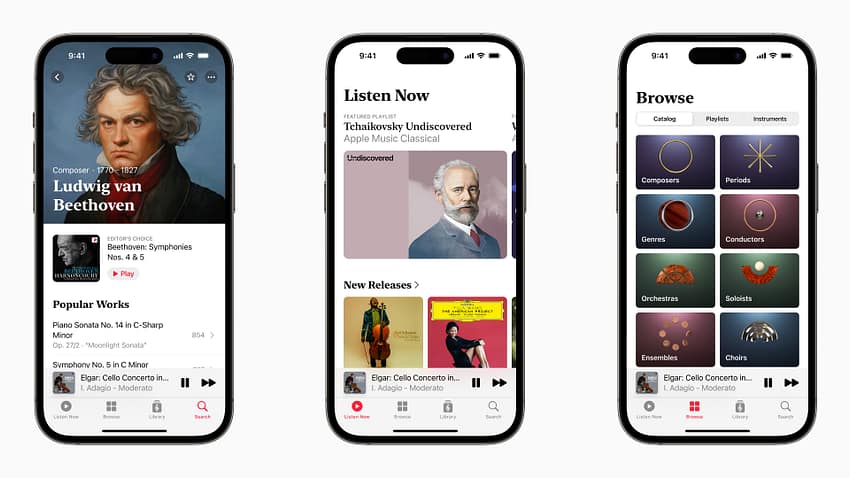Apple has released a support document that describes why classical music gets its own special app. In short, it’s because classical music is very different to more contemporary music.
According to Apple:
Classical music is different. It has longer and more detailed titles, multiple artists for each work, and hundreds of recordings of well-known pieces. The Apple Music Classical app is designed to support the complex data structure of classical music.
Source: Apple Music Classical Support Document
This makes a lot of sense. If you think of contemporary music, the song title is consistent, even across languages a lot of the time, and while there may be different versions of a song they are easily identified by the artist that recorded it. But classical music is very different.
Classical music often involves multiple musicians recording works that have been recorded many times before and are referred to by different names. For example, from the formal Beethoven’s Piano Sonata No. 14 to the popular byname of Moonlight Sonata, or in multiple languages, such as Mondschein Sonata in German. Such complexities mean that classical music fans have been ill-served by streaming platforms.
Source: Apple Music Classical website
So, in short, the way most music apps and services handle classical music doesn’t take into account its specific nature and the needs of listeners and aficionados.

Anthony is the founder of Australian Apple News. He is a long-time Apple user and former editor of Australian Macworld. He has contributed to many technology magazines and newspapers as well as appearing regularly on radio and occasionally on TV.

